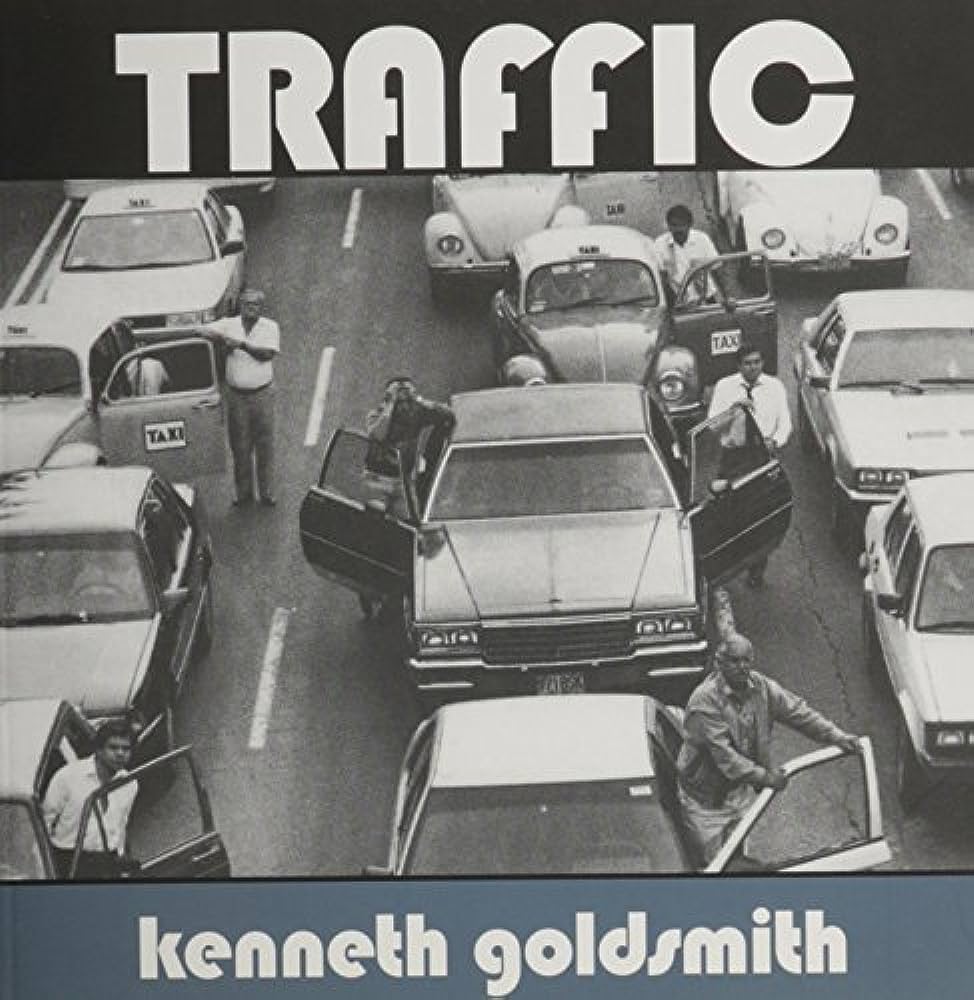
The avant-garde American poet Kenneth Goldsmith is controversial not due to any obscenity or transgression in his writing, but quite the opposite: he specializes in what he calls “Uncreative Writing,” a sort of literary equivalent to Found Art. His most notorious piece is his 2007 collection Traffic, wherein he transcribes hourly radio traffic reports in New York City over the course of a single Holiday weekend[1]Presumably Labor Day or Memorial Day, though significantly, the speaker never specifies–leading to accusations that Goldsmith has in fact edited these radio traffic reports, not just … Continue reading. That is literally the entire book: radio traffic report transcriptions–no commentary, no annotations, no narratives, just traffic reports.
He also produced similar transcriptions for “Weather” and “Sports”, wherein, yes, he transcribes radio weather reports over the course a single day, and transcribes the entire radio broadcast for a mid-season Yankees game. Needless to say, these works have made Goldsmith a lightning rod of sorts for those critical of postmodernism and experimental literature generally, as an art movement that has fatally jumped the shark and disappeared up its own navel, with not a single fresh new idea since Marcel Duchamp’s “Fountain.”
I was actually assigned Traffic in a graduate level course once, and even among us pretentious grad students, we found Goldsmith to be exasperating. Our professor, however, took a more charitable approach[2]For “if ye have not charity, ye are nothing, for charity never faileth. Wherefore, cleave unto charity, which is the greatest of all, for all things must fail–“, and noted that when, say, people complain that “It’s just a bunch of traffic reports,” what they’re really saying is that even ordinary things can be beautiful; and that when folks say that, “Anyone could have done that,” what they’re really saying is, “Yes, anyone can be a poet.” It was a strangely expansive, empowering approach to what was an otherwise off-putting collection.
It is, incidentally, the same expansive approach we take within the Gospel itself. We believe, for example, that all objects and matter, even the most ordinary things about us, are possessed of “intelligence,” that “all things unto me are spiritual, and not at any time have I given unto you a law which was temporal,”[3]D&C 29:34 that in fact “There is no such thing as immaterial matter. All spirit is matter, but it is more fine or pure, and can only be discerned by purer eyes”[4]D&C 131:7. By corollary, all matter is spirit as well, and capable of being perceived and understood spiritually–even the supposedly most mundane things.
It is why it is possible to perceive even the most ordinary, unexciting, unremarkable people around us as Gods-in-embryo, fellow children of God, enthralling even in their most quotidian (certainly it was an important moment on my mission when I learned to perceive the people on the streets around me in just such a fashion); it is why it is possible to experience even the most mundane, forgettable radio traffic report as sincere and genuine poetry, enlivened with the same divine energy that fires the stars in heaven.
References[+]
| ↑1 | Presumably Labor Day or Memorial Day, though significantly, the speaker never specifies–leading to accusations that Goldsmith has in fact edited these radio traffic reports, not just transcribed them, but that is a discussion for a different day |
|---|---|
| ↑2 | For “if ye have not charity, ye are nothing, for charity never faileth. Wherefore, cleave unto charity, which is the greatest of all, for all things must fail–“ |
| ↑3 | D&C 29:34 |
| ↑4 | D&C 131:7 |
